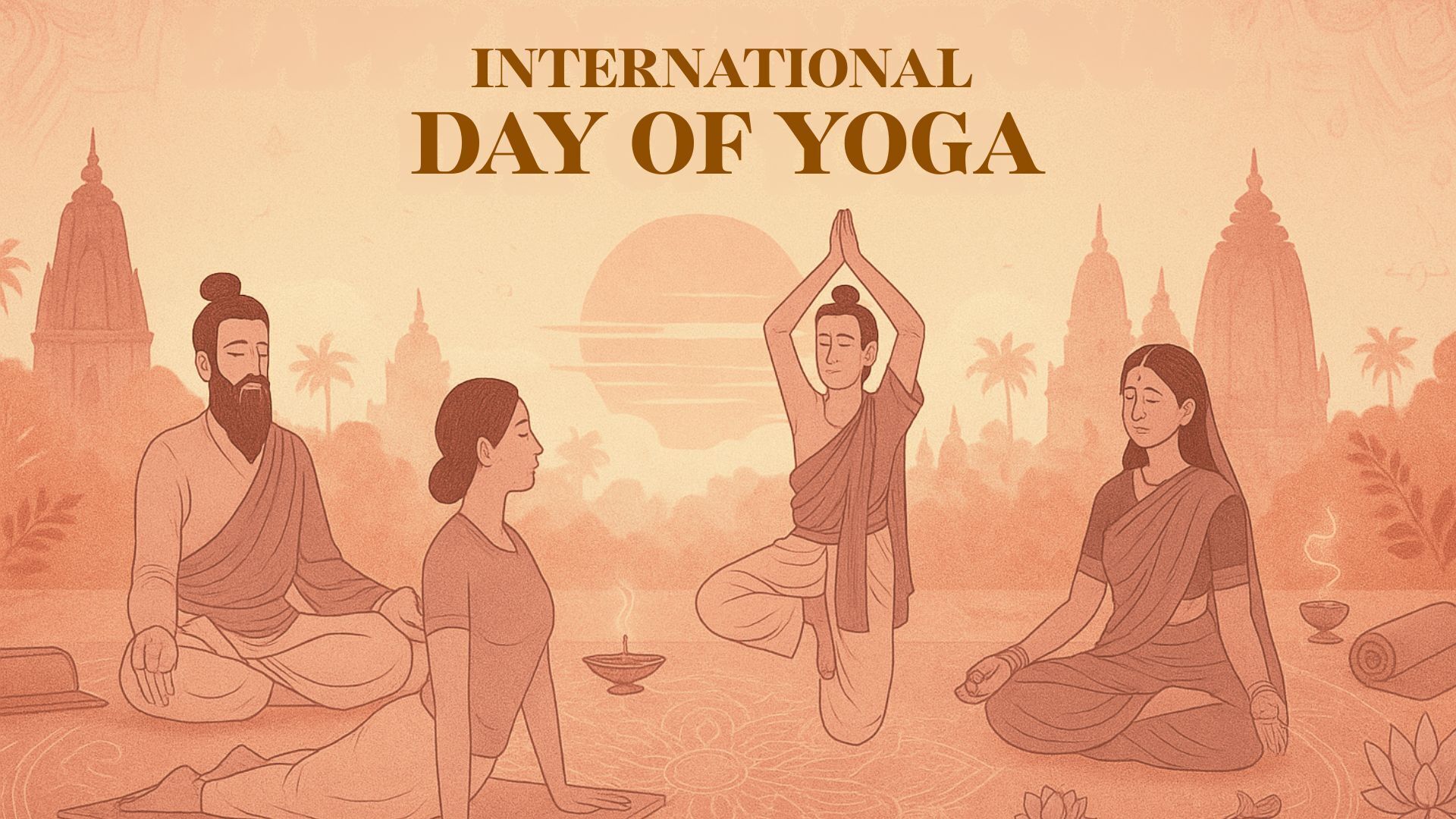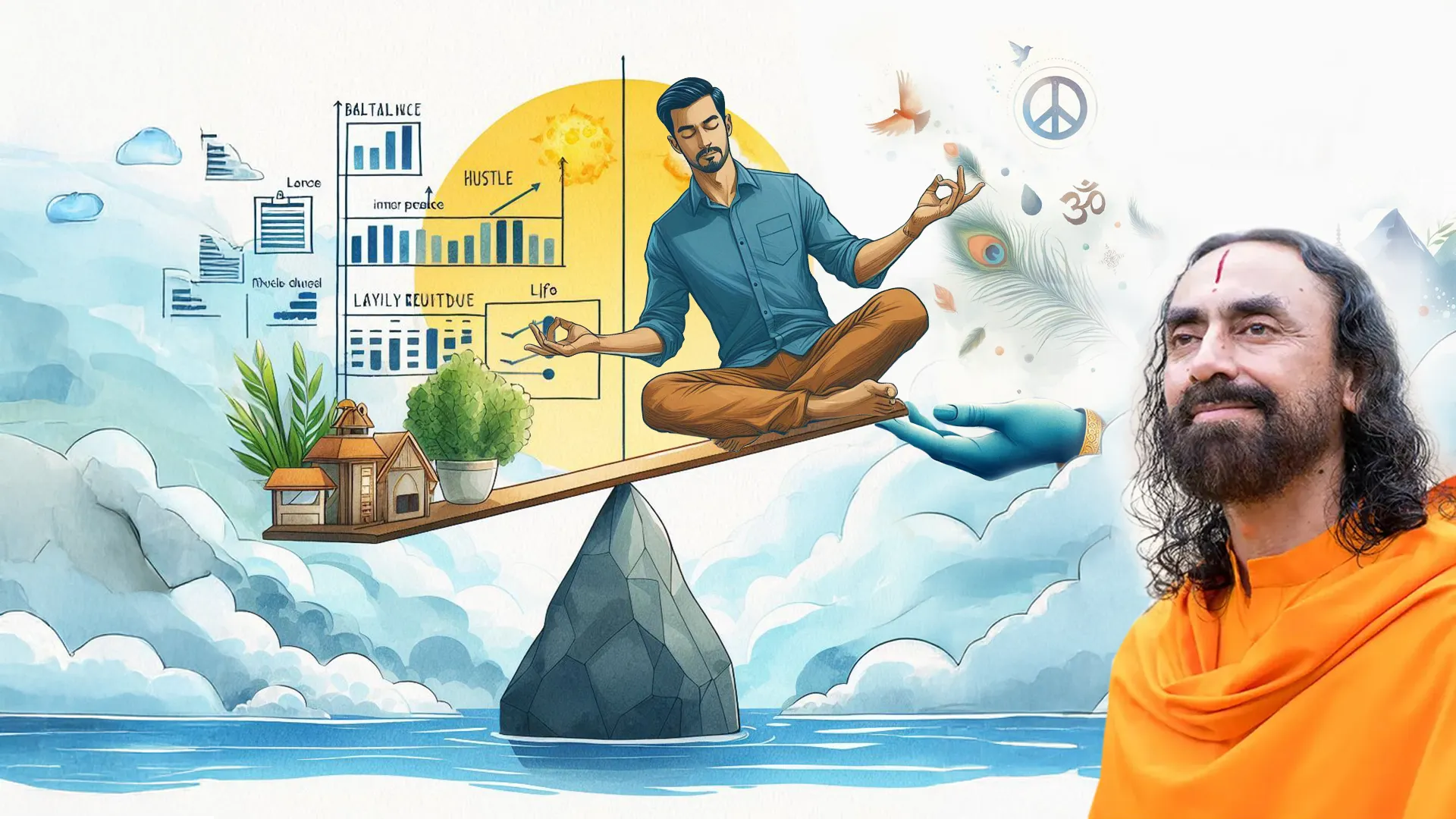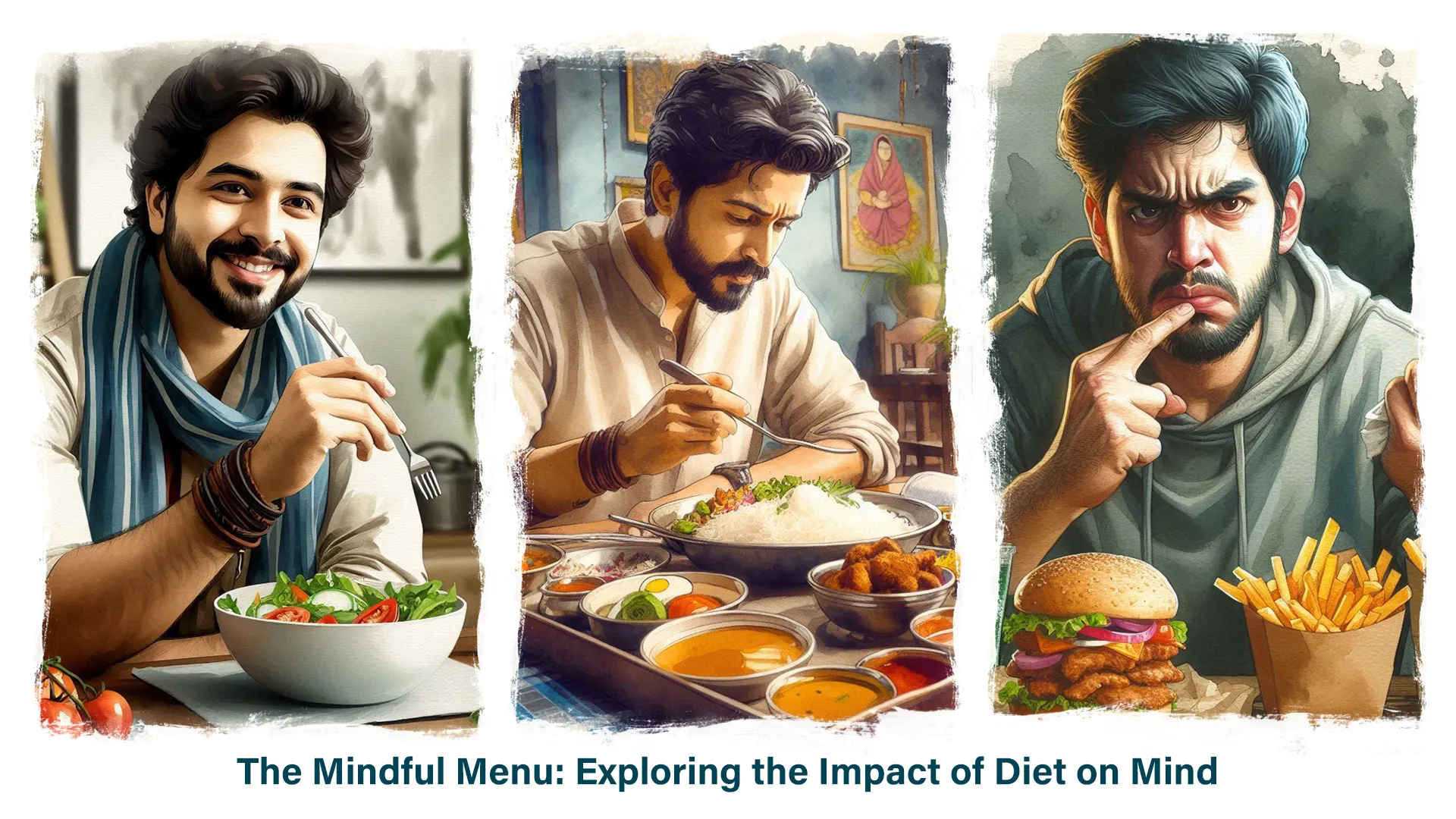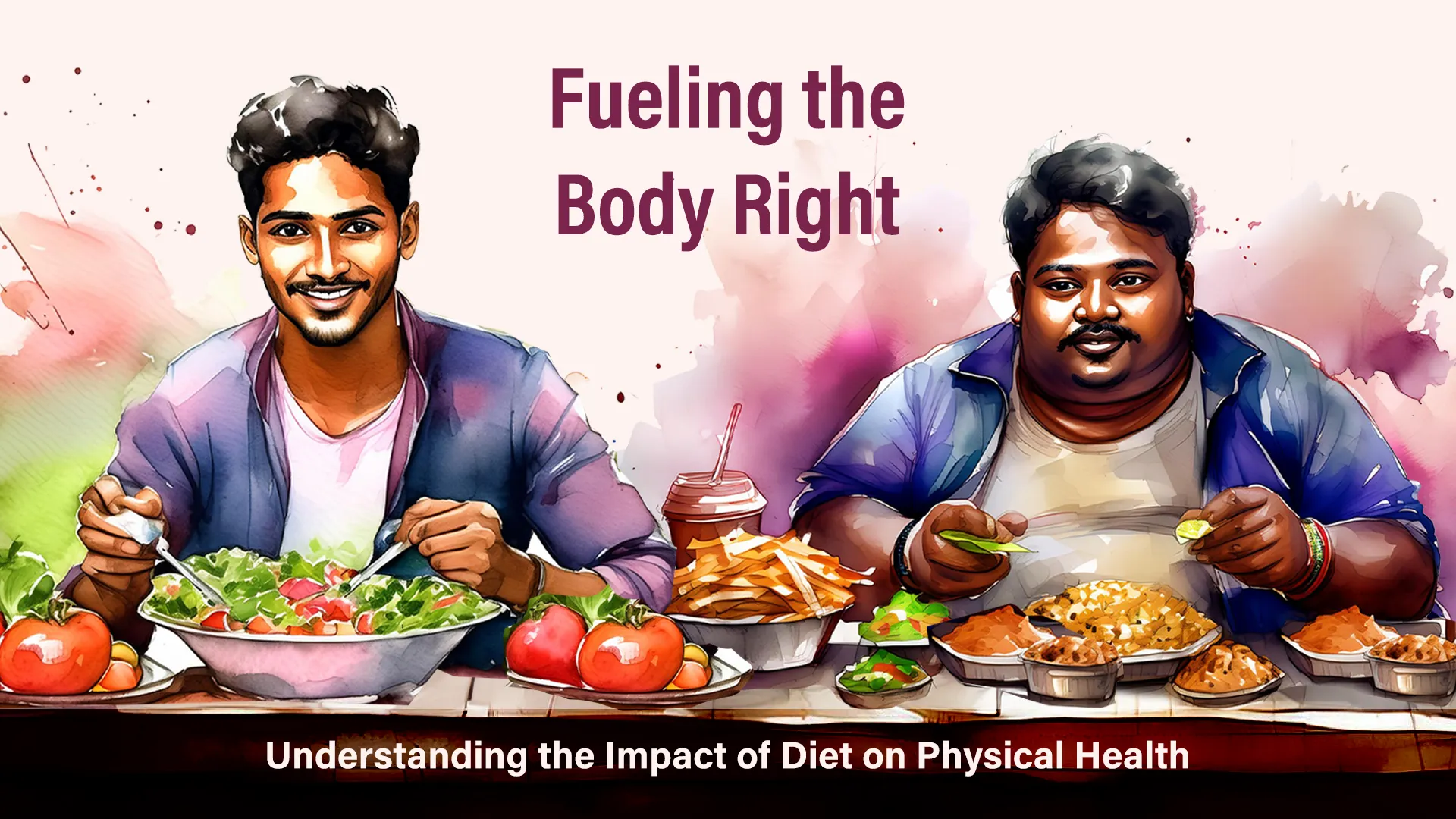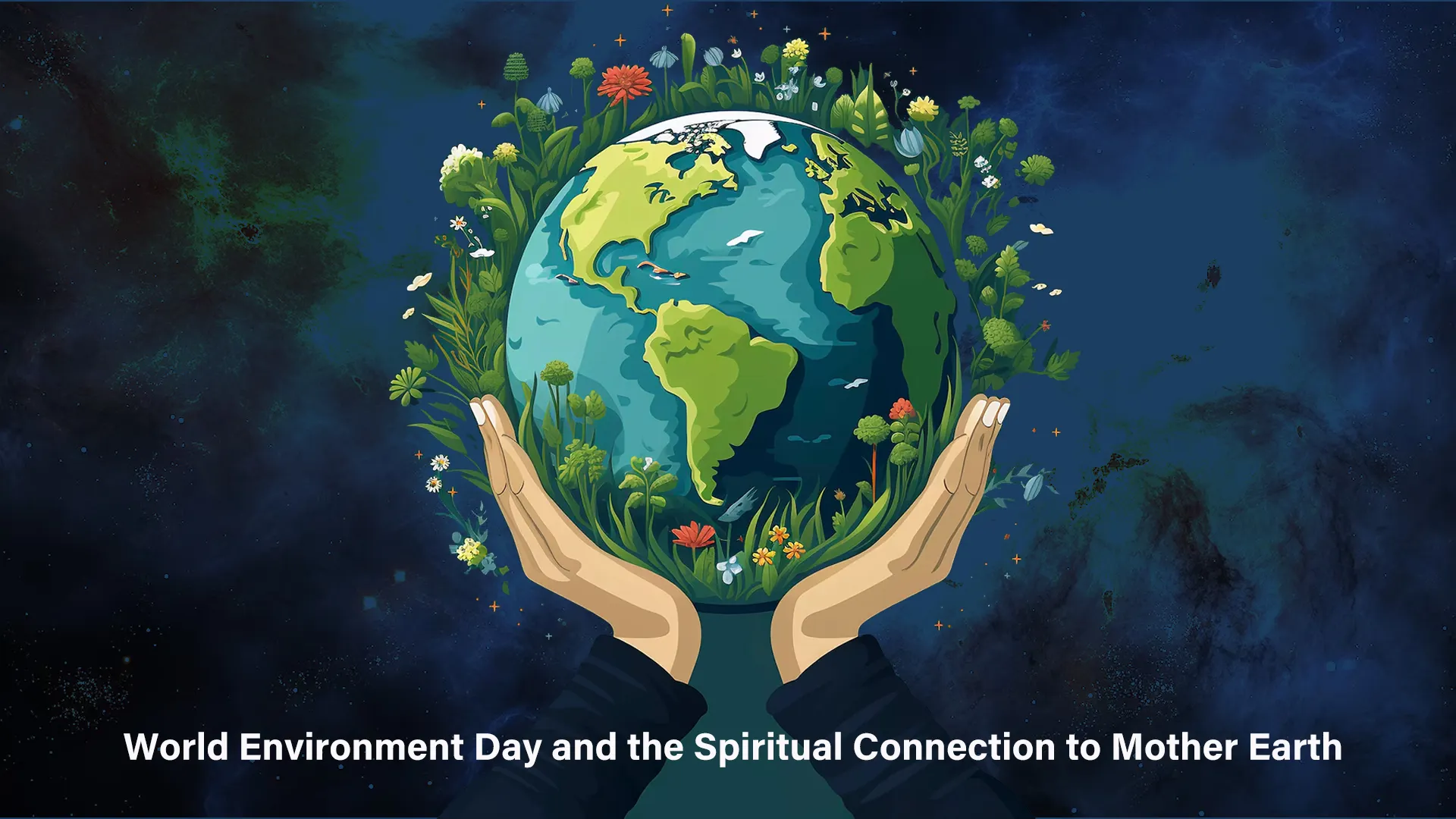Happiness is the most sought-after goal in the world, but it is also the most elusive. Such elusiveness results from misconceptions about the nature of true happiness. In this fast-paced world, the human mind seeks instant gratification in the form of money, fame, and power.
But when these desires are fulfilled, are we truly happy? And if yes, how long does that happiness last? Does it last forever or just till the next desire arises?
If desires keep arising even after gratification, it is anything but happiness. Multinational companies sell us fun and entertainment in the guise of happiness while creating the desire for new products and activities through attractive advertisements. These desires can be compared to an itch. Hoping to get relief, we scratch the itch, but doing so only aggravates the problem. The more we gratify the itch, the more severe the urge to scratch it. This leads to sore skin. On the other hand, if we tolerate the itch in the first instant, it may cause a little discomfort, but it settles down soon.
Hence, happiness definitely does not follow from success in the external world in the form of material possessions and achievements. And in hankering for worldly objects, we are looking for happiness in the wrong place.
Such pleasure-seeking can be equated with the Greek concept of Hedonia. We keep chasing our hedonistic pleasures but find ourselves in no better condition than before. This is the ‘hedonistic treadmill,’ which traps us in our own desires lifetime after lifetime. Hedonia can thus be understood as “The Happiness Trap.” Hedonists seek happiness by avoiding pain. They prefer to escape work and duties even though they may hold great value.
The Bhagavad Gita states:
आब्रह्मभुवनाल्लोका: पुनरावर्तिनोऽर्जुन |
मामुपेत्य तु कौन्तेय पुनर्जन्म न विद्यते ||
ā-brahma-bhuvanāl lokāḥ punar āvartino ’rjuna
mām upetya tu kaunteya punar janma na vidyate (BG 8.16)
The wisdom from this verse is that if we seek happiness in external objects, we will continue to rotate in the cycle of samsara. However, if we turn our minds away from sensual pleasures, we will gradually develop an elevated state of consciousness, and there will be no rebirth. This will not happen on its own but will require effort.
Eudaimonia is another Greek word for “good spirit.” In contrast to Hedonia, it denotes the state of positive well-being aligned with our true selves. Hence, it is related to the well-being associated with pursuing meaningful goals that provide a sense of fulfilment. These goals include personal growth, striving for excellence and a higher purpose in life. They provide long-term fulfilment but require effort and patience, while hedonic pleasure is easy entertainment. One brings comfort, while the other challenges and rewards with satisfaction. One is momentary, while the other is evolutionary.
Eudaimonic activities boost growth and build character. They inspire us to live virtuously and demand commitment to excellence. They help us manifest the infinite potential of the soul. This fulfilment stays with us forever, helping us face life with more confidence and hope.
It must be understood that happiness precedes success, not the other way around. Seemingly happy situations like getting a job or promotion, getting married, having children, going on a vacation, and buying a house or a car fails to give us long-lasting happiness, which every soul is questing for. Rather, deeds that align with a higher purpose in life give us long-term bliss. Hence, seekers of permanent happiness must be ready to tolerate pain first so as to reap its benefits permanently and live happily ever after!




